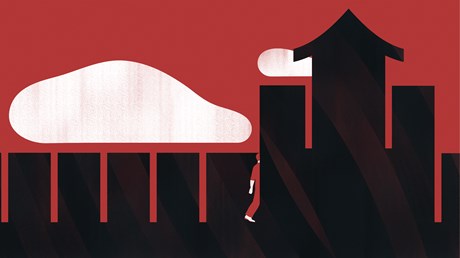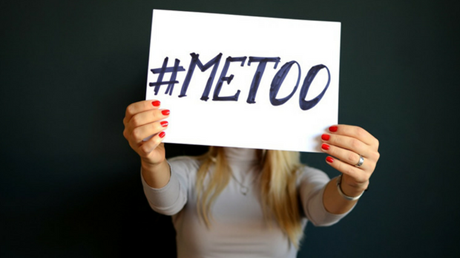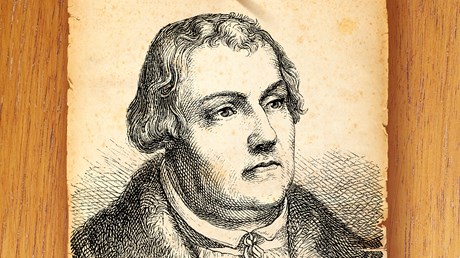Thursday, 30 November 2017
John 1:1-2, 14
from
https://www.biblegateway.com/passage/?version=NIV&search=John%201:1-2,%2014
Canada’s First Christian Law School Pleads Case to Supreme Court
Evangelicals pray for a win for Trinity Western University—and for religious freedom in general.

Today the Canadian Supreme Court began hearing a high-profile religious freedom case that will determine the fate of an evangelical law school in suburban Vancouver.
Trinity Western University’s plans to launch a law program—a first for a Christian institution in Canada—were stalled for four years, as the school faced legal challenges over its campus covenant, which bars sexual activity outside of traditional marriage.
Law societies in three Canadian provinces argued that the school policy discriminated against LGBT students, and refused to accredit future Trinity Western graduates as a result.
Canadian law schools must have provincial law society approval (in addition to sanctions from the government’s advanced education ministry and the Federation of Law Societies of Canada) in order to operate.
In three provinces—British Columbia, Nova Scotia, and Ontario—the university defended its position in court, saying the covenant is a reflection of the school’s Christian values and applies broadly to students of all faiths and sexual orientations. It won its case in two of the three, and has appealed up to the Supreme Court in hopes of finally securing approval to operate.
“We are a private institution and we operate in a way that is consistent with our Christian faith,” Earl Phillips, the law school’s executive director, told CBC News. “This is not just a restriction on Trinity Western University, this is not just on evangelical Christians—it’s on the entire Christian church. It’s on all faiths.”
In the joint cases of Trinity Western University v. Law Society of Upper Canada and Trinity Western University v. The Law Society of British Columbia ...
from
http://feeds.christianitytoday.com/~r/christianitytoday/ctmag/~3/XjfTue6QX0k/canada-christian-law-school-supreme-court-trinity-western.html
Getting Past Inertia: Three Simple Tips for Sharing Our Faith
Sailboats and lists

In some of our Billy Graham Center staff meetings, I ask our staff who they’ve been able to share the gospel with that week. After all, we work for an organization that bears the name of a man who made sharing the gospel his whole life’s work.
Sometimes I let people volunteer. Sometimes I ask randomly. I want us to be accountable to one another regarding evangelism—and not just because we work at the Billy Graham Center.
During his 40 years of ministry, Billy Graham preached the message of Christ’s redemption to nearly 215 million people in over 185 countries. What an amazing ministry. But his message is more important.
I’ve been thinking more and more lately about the importance of modeling personal outreach. As a pastor and executive director of the BGC, I can’t ask people to do things that I am unwilling to do. I know life gets busy but, at the end of the day, no packed schedule or professional pursuit should get in the way of our willingness to obey the Great Commission and see people trust in Jesus.
We live in a world of great needs: physical, spiritual, emotional, and the like. People all around us are crying out in search of a source of hope. As believers, we know exactly what they need: Jesus. He is the only one capable of bandaging their wounds, healing their hearts, and, most importantly, forgiving their sins. Given this, telling people about the good news of Jesus Christ is all the more urgent.
Here are some lessons I’ve learned and thoughts I’ve had on how to be more effective at sharing the gospel.
First, we must find our ‘sailboat’.
Lots of people have heard of Bill Hybels. However, I often ask people, “Who has heard Bill Hybels talk about his sailboat?” ...
from
http://feeds.christianitytoday.com/~r/christianitytoday/ctmag/~3/-Eanb1ytpy4/getting-past-inertia-three-simple-tips-for-sharing-our-fait.html
Wednesday, 29 November 2017
2 Peter 3:10-11
from
https://www.biblegateway.com/passage/?version=NIV&search=2%20Peter%203:10-11
Guns and Pens
from
http://www.patheos.com/blogs/tippling/2017/11/30/guns-and-pens/
Not Seeing God: Atheism in the 21st Century
from
http://www.patheos.com/blogs/tippling/2017/11/29/not-seeing-god-atheism-21st-century/
Cheering China’s Urbana: Churches Poised to Become Major Exporters
Hundreds pledge lives to missions as red tape rises.

When 1,200 youth gathered for the first Chinese “Urbana-style” missions conference this fall, 300 pledged to become full-time missionaries.
“This is one of those historic moments,” said David Ro, director of the Wilson Center for World Missions at Gordon-Conwell Theological Seminary. “There are lots of challenges ahead, on the mission field and in China. And yet God is doing something—while they are being attacked, they are still moving forward.”
The gathering was “a unique opportunity to witness the authentic demonstration of a vibrantly growing Chinese church under dynamic indigenous leadership,” said Nana Yaw Offei Awuku, a field ministry director with Scripture Union Ghana who spoke at the event. “The beauty of intentional intergenerational leadership was at its best.”
Held in Thailand, the conference was part of Mission China, a movement of unregistered churches to send out 20,000 missionaries by 2030 [see “Made in China,” January/February 2016].
It’s an ambitious goal for churches that have yet to obtain legal status. And it may have run into a snag this summer when two young Chinese Christians—who traveled to Pakistan to teach Mandarin at a private school—were kidnapped and killed by ISIS.
The incident put China in a tough spot. As it seeks to expand its influence westward, its leaders need to be able to protect the 70,000 Chinese who were issued visas to Pakistan last year. But its atheist government also doesn’t want to be exporting Christianity.
“The Chinese authorities are in a very difficult position,” said Chinese religion expert and Purdue University professor Fenggang Yang. “[Most] didn’t ...
from
http://feeds.christianitytoday.com/~r/christianitytoday/ctmag/~3/igSL-yx9Zqs/cheering-chinas-urbana-churches-poised-to-become-major-expo.html
Your Spouse Doesn’t Need Your Unconditional Support
Sometimes the deepest expression of love comes in the form of difficult-to-hear truths.

I once heard about a woman who liked to tell her entrepreneur husband, “You can do whatever you want. You’re the CEO.” She said this when he wrestled over a decision, when he wondered what others might think, and when he accepted more modest perks and benefits to try to save the company money.
On the surface, her words seemed extremely supportive. She was affirming her husband’s wisdom and decision-making in his role as leader of his company and encouraging him to use his authority.
But the longer I thought about her statement, the more it unsettled me. If her husband truly took her advice at face value and behaved accordingly, the consequences could be disastrous. He might stop taking others into account; he might not seek advice or input; he might not take the time to carefully consider his decisions or to learn from his mistakes. In the end, such an approach could actually harm his business, his character, and even their relationship.
Integrity is essential
As I’ve spent time in various business and start-up circles, I’ve found that being a supportive spouse of an executive or leader isn’t as simple as we might think. We want to show unconditional love toward and acceptance of our partners—but that’s not the same as affirming all of their behaviors, choices, and perspectives.
In the workplace, leaders already have a tendency to surround themselves with yes-men. One study by researchers at the University of Michigan and Northwestern's Kellogg School of Management stated that corporate leaders are “subjected to high levels of ingratiation in the form of flattery and opinion conformity.” As a consequence, this “can increase CEOs’ overconfidence ...
from
http://feeds.christianitytoday.com/~r/christianitytoday/ctmag/~3/BP0kiwcARfk/spouse-doesnt-need-unconditional-support-cheng-tozun.html
What Does #MeToo Have to Do with You? Seeking to Be Disciples in a Hurting World
When we tell our stories, we move from the western “I” to the biblical “we.”

There is a concept that some in the field of neuroscience call “increased integration.” Simply put, it’s the idea that when people share their personal stories with another, both people see changes in their brain circuitry. In fact, according to psychiatrist Dr. Daniel Siegel, when someone tells his or her story and is truly heard and understood, real change happens. They feel a greater sense of emotional and relational connection, decreased anxiety, and greater awareness of and compassion for others’ suffering.
Poet and civil rights activist Maya Angelou said it this way: “There is no greater agony than bearing an untold story inside you.”
The traction that the #metoo campaign has gained has been phenomenal. As we see woman after woman come forward with reports of harassment and assault from some in American leadership today, the discussion pulls two ends of the same cord and lands at varying points in the middle. For some, the question remains, “Who should we believe?” For others, the question is, “How can we help?” Both are helpful and both must be thoughtfully considered.
My past includes sexual assault. To this day, I wish this chapter weren’t part of my story. The shame has passed, but the memories linger. Over and over, I’ve sought to take out my proverbial eraser and omit the entire scene, and many following. And for many years, no one knew this chapter even existed. Until I shared it and everything changed.
When I look at the #metoo phenomenon, I’m admittedly perplexed. Pandora’s Box has been opened and stories spill out. Over social media, in news outlets, in 140-character tweets.
And I come back to one question that pesters me at night: ...
from
http://feeds.christianitytoday.com/~r/christianitytoday/ctmag/~3/mN1HbxGV7w0/what-does-metoo-have-to-do-with-you-seeking-to-be-disciples.html
Don’t Blame Martin Luther for the Evils of the Modern World
Brad Gregory follows the bouncing balls of post-Reformation history—but loses sight of who set them in motion.

Everyone likes a good villain. It makes a better story, and, in the real world, scratches our universal human itch of being able to name and blame the source of the evils that afflict us. And plenty of evils there are, if you look out the window today: paralyzing political dysfunction, economic and ecological injustice, and increasingly, fundamental disagreement over what it even means to be a human being. Sure, there are bright spots, but it’s more fun to look at the dark side.
Over the past couple decades, a robust industry of modernity criticism has inverted the central premise of the secularization narratives that used to dominate the field. Instead of “Luther and the Reformation gave us pluralism and capitalism and secularism, and isn’t that great?” it seems to be “Luther and the Reformation gave us pluralism and capitalism and secularism, and isn’t that a shame?” In part, this owes to an increasing awareness of the downsides of modern freedoms. Another factor, perhaps, is an increasing ascendancy of Catholic scholars in the academy, who are likely to look on the Reformation with a jaundiced eye.
One such scholar, Brad S. Gregory of Notre Dame, established himself at the forefront of this new scholarly movement with his 2012 tome, The Unintended Reformation. Although this book was subjected to a withering storm of criticism from historians and theologians of many persuasions, Gregory has re-entered the ring with Rebel in the Ranks, a popularized version of the same argument delivered just in time for Reformation’s 500th anniversary.
Actions and Reactions
Gregory’s central thesis remains unchanged: that although the Reformers never meant it so, their clarion call of “Scripture ...
from
http://feeds.christianitytoday.com/~r/christianitytoday/ctmag/~3/BUYjBPm2nGs/dont-blame-martin-luther-for-evils-of-modern-world.html
Digging Down Deep into Protestant-Catholic Differences
Two books—one Catholic, one Protestant—show how the conversation should be engaged.
During this 500th anniversary of Martin Luther’s 95 Theses—the Reformation’s start by traditional reckoning—we see extremes. Some Christians are foaming at the mouth like pit bulls, going for the jugular of their Catholic or Protestant opponents. Others are so open-minded that their brains fall out of their heads. Such variety is reflected in books, conferences, and in general discussion of things Catholic and Protestant. Two books published this year offer bright shining examples of how the conversation should be engaged—with warm hearts, respectful attitudes, and seriousness about theological detail.
Peter Kreeft, formerly a Protestant, now Roman Catholic, has written Catholics and Protestants: What Can We Learn from Each Other?His style is modeled on Pascal’s Pensées, with short answers and single points to ponder rather than protracted explanations. The book’s message, as Kreeft states, is predicated on the ecumenical vision of Jesus from John 17:21, “that all of them may be one,” a conviction that leads him to approach the conversation as an “Australian sheepdog, herding and hectoring Christ’s separated sheep back to His face.”
This book, like virtually everything Kreeft writes, is a pleasure to read. His prose has an alluring quality. Like an extended display of Italian cannoli and gelato, it commands one’s attention, and after sampling a bit you must have more. Here is a small taste of the refreshingly direct way in which Kreeft exhorts readers to open the Bible and read what it says about Christian unity.
Do it. Actually do it—now, before you read another paragraph. Don’t just think about it—do it. “Yes, I agree; ...
from
http://feeds.christianitytoday.com/~r/christianitytoday/ctmag/~3/yGSe-MqLbec/digging-down-deep-into-protestant-catholic-differences.html